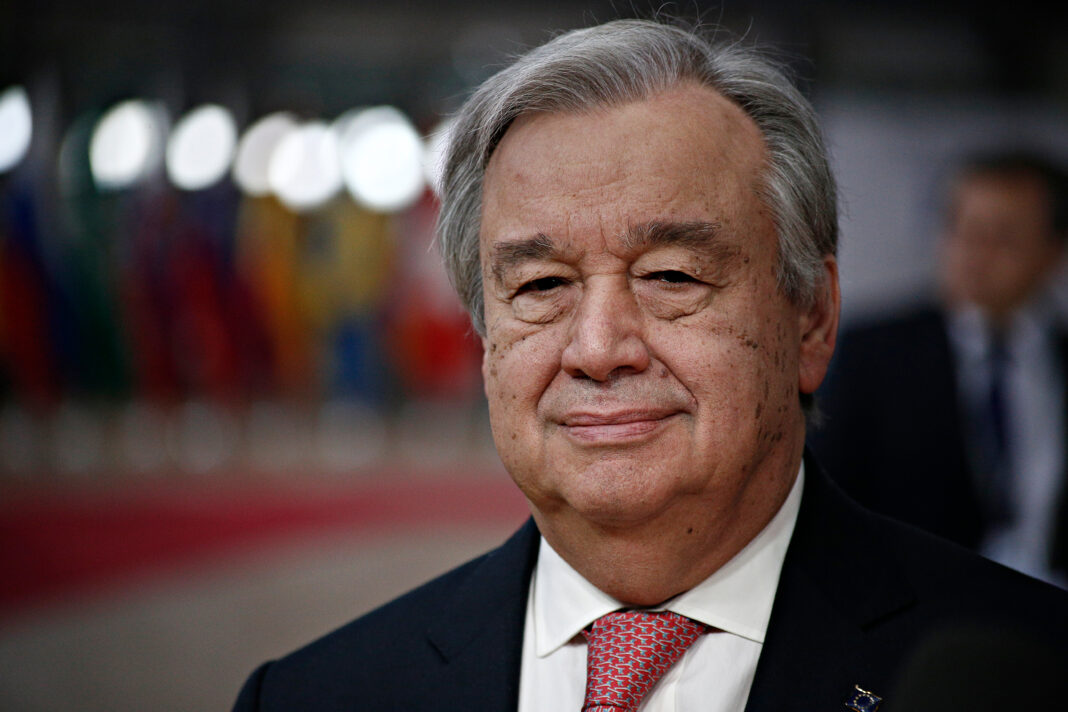by Maurizio Sacchi
Visiting Port-au-Prince on 3 July, UN Secretary-General Antonio Guterres called for a “robust international force” to help the Haitian police fight criminal gangs. It was Guterres’ first visit to Haiti as UN chief. “We must put Haiti on the international political map and make the tragedy of the Haitian people the top priority of the international community,” he said after meeting Prime Minister Ariel Henry.The UN chief has been pushing for months to send a ‘rapid action force’ to support Haiti’s security services. But so far no country has been willing to take the lead, despite formal support from several governments, notably Canada and Brazil. Trudeau has been cautious about the proposal, although Canada has sent armoured vehicles for the police.
Joe Biden has made it clear that Washington will not lead a force and will instead focus on strengthening the national police. But as UN Deputy Secretary-General Amina Mohammed pointed out in December, the force has only 13,000 personnel, of whom only 9,000 are operational, compared to more than 100 criminal gangs that now control 60 per cent of the capital and much of the countryside. Last September, the gangs blocked a fuel terminal for six weeks, disrupting most economic activity. In October, the UN Security Council sanctioned Haiti’s most powerful gangster, accusing him of leading the blockade in protest at cuts in government fuel subsidies decided by the unelected and widely seen as illegitimate interim president, Ariel Henry. When the subsidies were suspended, the coalition of criminal gangs known as the G9 blockaded the main port and terminal for fuel, the price of which had doubled. The country’s army – disbanded in 1995 after years of military interference in politics – has been reconstituted, but has only 500 soldiers.
The country has been in a state of political and institutional crisis since the assassination of President Jovenel Moïse in 2021 by Colombian mercenaries, whose instigators have never been identified. Many countries are wary of the Henry government, which took power in July 2021, a few days after the assassination of President Jovenel Moise, and has repeatedly said that regular elections cannot be held in the current situation of insecurity. Henry has pledged to leave office by 7 February 2024. Guterres said he had a “frank exchange” with Henry and others on the “need for a political agreement to end the crisis”, but gave no details.
There have been no elections since 2019, but Haiti’s political crisis pales into insignificance when compared to its humanitarian crisis, the aftermath of the 2010 earthquake that left 300,000 dead. Haiti is experiencing its worst famine on record, with 4.7 million people facing acute hunger. Ongoing violence has forced the closure of hospitals and led to a resurgence of cholera. The UN estimates that 155,000 people have fled their homes – almost one in six of the city’s population. In April, the UN chief said the level of insecurity in Port-au-Prince was comparable to countries in armed conflict and that Haitians were facing one of the worst human rights crises in decades.
To learn more, read our Haiti conflict factsheet
On the cover photo: Antonio Guterres, Secretary-General of the United Nations © Alexandros Michailidis/Shutterstock.com
























